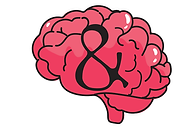
Philosophy & Neuroscience Collaborative Mentorships
Information & Application
MADE POSSIBLE BY A GENEROUS GRANT FROM:

The Society for Philosophy and Neuroscience is now accepting applications for our collaborative mentorship program. Accepted mentees will be paired with a mentor in philosophy and a mentor in neuroscience and will work on a project over the course of one year. Each mentee will receive a Dana Foundation Travel Award (travel and accommodations) to attend and present their research project at SPAN2027.
Deadline: February 28th, 2026 at 11:59pm EST
Mentorship:
-
Mentees may be from philosophy or neuroscience
-
Must be at the earliest career stage: undergraduate or graduate
-
-
May suggest mentors from either or both fields: mentor must also be early career (post-doc, pre-tenure faculty). If mentors are not suggested, SPAN will pair the mentee with mentors.
-
Mentors receive a $500 honorarium for their service.
-
-
Mentees will propose a research project that will be executed over the course of one year (May 2026 - May 2027).
-
The project must demonstrate an interdisciplinary effort that engages both philosophy and neuroscience.
-
Example topics:
-
How do philosophers and neuroscientists make sense of the mind?
-
What is perception?
-
What is thought?
-
How do models inform theories?
-
What role does inference play in brain imaging studies?
-
-
-
Mentees will attend and share their research project at SPAN 2027.
-
Mentees will participate in a pre-presentation workshop at SPAN2027 (Day 1) where they will practice their presentation and get feedback and assistance from SPAN members to prepare for their conference presentation (Day 3).
-
Submission Process:
Please email your application to submissions@philandneuro.com with the subject line “SPAN Mentorship Program Submission” no later than February 28, 2026, 11:59pm EST. Applications should be submitted as a single pdf attachment with the following information:
-
Mentee Information
-
Name
-
Email Address
-
Phone Number
-
University Affiliation
-
Rank (e.g., undergraduate, graduate student)
-
Year in program
-
Major and/or Department
-
-
Suggested Mentors (if applicable)
-
Name
-
Email Address
-
University Affiliation
-
Rank (e.g., graduate, post-doc)
-
If a graduate student, year in the program
-
Department (Philosophy or Neuroscience)
-
-
Project Description (up to 500 words)
-
Description of how the project demonstrates interdisciplinarity.
PLEASE NOTE: Whether mentors are proposed will not be factored into the award decisions. It is up to the individual as to how they would like to shape their mentorship experience.
Project Timeline:
April 2026: Decision Announcements
May 2026: Mentorship Pairings Finalized
May 2026-April 2027: Mentorship Program Runs
April 2027: Mentee Project Due
End of May 2027: SPAN2027
Some More Information:
-
Mentees must be enrolled in their program or have an acceptance in hand with a start date that aligns with the start of the mentorship program in May 2026. If you are not enrolled by the time the application is submitted, but will be when the project begins, you should address this on your application.
-
We understand that many neuroscientists are housed within psychology departments and that the line between neuro and psych is somewhat fuzzy. If the mentee and/or mentor is housed within a psychology department, it may be helpful to address this on the application and indicate how the project fits within neuroscience.
-
Potential mentees should submit no more than one application. Potential mentees should not, for example, submit several projects as independent applications.
-
While an individual may only appear on one project, graduate students that are suggested as mentors may also submit an application to be a mentee. If the graduate student is chosen as a mentee, we will suggest alternative mentors for the other project.
-
Graduate student mentors should be able to demonstrate their ability to provide quality mentorship. When pairing mentees with mentors, we will seek information from potential mentors such as their CV and/or a writing sample.
For additional questions not addressed here, please contact Danielle Williams: danielle.williams@purdue.edu
Mentor Volunteer From:
If you would like to volunteer as a mentor, please fill out the following form. We cannot guarantee that you will be paired with a mentee due to fit and potential suggested mentors, but we appreciate those who wish to volunteer to serve in the role if needed.